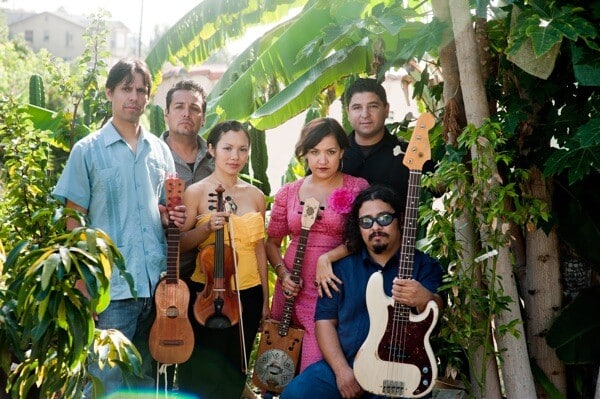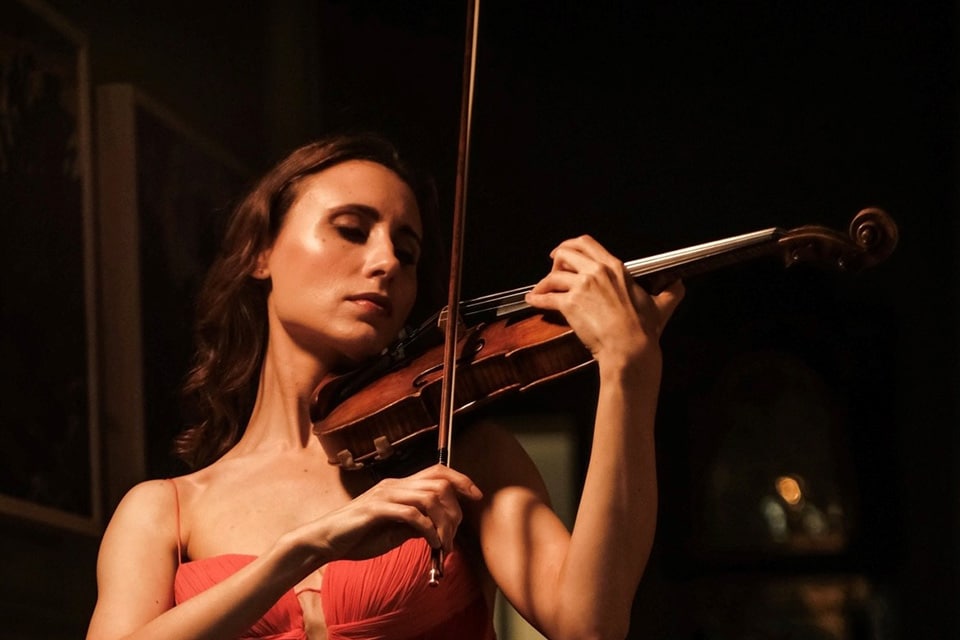Carnegie Hall goes LatinX next season
OrchestrasPress release for next season:
Major programming highlights include Nuestros sonidos (Our Sounds), a season-long festival celebrating the vibrant sounds, diverse traditions, and influence of Latin culture in the United States with performances spanning a range of genres, highlighting the game-changing contributions and constant evolution of Latin music; four Perspectives series curated by celebrated artists—pianists Lang Lang and Mitsuko Uchida, violinist Maxim Vengerov, and vocalist, composer, and visual artist Cécile McLorin Salvant; and the season-long appointment of Gabriela Ortiz to hold the Richard and Barbara Debs Composer’s Chair.
Carnegie Hall’s 2024–2025 season launches on Tuesday, October 8 with a festive Opening Night Gala performance by Gustavo Dudamel leading the Los Angeles Philharmonic featuring Rachmaninoff’s Piano Concerto No. 2 with Carnegie Hall Perspectives artist Lang Lang, plus Ginastera’s ballet Estancia with baritone Gustavo Castillo. Mr. Dudamel and the Philharmonic return the following evening, October 9, with the New York premiere of a new work for cellist Alisa Weilerstein by Gabriela Ortiz (this season’s holder of the Richard and Barbara Debs Composer’s Chair), and Felix Mendelssohn’s A Midsummer Night’s Dream, narrated by internationally renowned Spanish actress María Valverde. For their third and final performance, on October 10, Mr. Dudamel and the orchestra reunite with Mexican singer-songwriter Natalia Lafourcade, a four-time Grammy and 17-time Latin Grammy winner who returns following her sold-out Carnegie Hall debut in 2022. These concerts launch Carnegie Hall’s season-long festival Nuestros sonidos: Celebrating Latin Culture in the US.
The Nuestros sonidos festival continues on October 23 with soprano Lisette Oropesa—one of the most sought-after lyric coloratura artists today—performing an evening of songs that includes works by Cuban composers such as Joaquín Nin, Ernesto Lecuona, Eduardo Sánchez de Fuentes, Jorge Anckermann, and Gonzalo Roig with pianist Ken Noda in Zankel Hall. Cuban American soprano Elena Villalón offers a program that includes songs by Cuban composer Ernesto Lecuona and Mexican composer María Grever with pianist Craig Terry on November 13 in Weill Recital Hall.
Additional fall festival highlights include a performance in Zankel Hall by Quetzal (pictured), the Grammy Award-winning, genre-crossing group from East Los Angeles in a program that traces the history of Mexican music in the US on November 15. The “Queen of Reggaeton” Ivy Queen—Billboard’s 2023 Women in Music Icon, who first emerged on the music scene in the 1990s with a powerful ethos of empowerment and self-determination—makes her Carnegie Hall debut on November 20.
Composer Gabriela Ortiz continues her series on October 18, with the New York premiere of Can We Know the Sound of Forgiveness, a groundbreaking collaborative performance by The Crossing, flutist Alejandro Escuer, and others merging her music with visual art, dance, movement, and spoken word. Violinist María Dueñas presents the New York premiere of a new work by Ortiz on her October 22 recital with pianist Alexander Malofeev. Ortiz curates a program for a double-bill concert with Roomful of Teeth featuring the world premiere of her new work for the ensemble, co-commissioned by Carnegie Hall; and Tambuco Percussion Ensemble, playing music by Ortiz and other contemporary Latin American composers on January 25 in Zankel Hall Center Stage as part of the Nuestros sonidos festival. She serves as Artistic Partner for an Ensemble Connect Close Up concert on January 27 in the Resnick Education Wing, to include the world premiere of a Carnegie Hall commission by Colombian composer Carolina Noguera. The Attacca Quartet plays the world premiere of a new work (co-commissioned by Carnegie Hall) on a program that also includes Ortiz’s Altar de muertos in Zankel Hall on May 1. Her residency concludes on June 18 with Yannick Nézet-Séguin leading The Met Orchestra in Ortiz’s Antrópolis, a work which offers a reflection of Mexico City as told through its legendary dance halls.






Does the X in “Latinx” refer to Elon Musk’s company X?
Ok then, I think it’s time for your medication granpa
The woke programming, if even sincere, is undermined by the necessary inclusion of Mickey Mouse Lang Lang to draw in the requisite paying audience base, i.e., to bankroll the woke program.
Carnegie Hall doesn’t think either Dudamel alone or even the “Queen of Reggaeton” alone is enough to fill seats.
“I don’t hate the Hispanics; I just don’t like hearing their music in the concert hall!”
So any music from a vast part of the globe containing 656 million people (per Wikipedia) is suddenly “woke?” Interesting theory.
Since when doing the almost done-to-death Estancia (though this time it’s the complete ballet) is sign of woke programming?
This is SMART…Darwin gave the direction that it is not the strongest of the fastest that survives…but he how adapts the fastest that survives…
I have been thinking about this “all concerts have the intensity of a wake”..I like innovation…trying new direction…classical/old music is in need of help…at many levels…
The Carnegie programs are wide ranging amd while there is a higher than usual program of ‘Latin inspired’ music……why not? There’s still the Czech and Vienna Philharmonics the Cleveland and Philly orchestras Asmik Grigorian and others all not doing that repertoire. And nobody uses LatinX any more…
.
Since you asked why not, maybe Google something along the lines of Shostakovich emptying concert halls and find quite a number of results. If some concertgoers don’t want Shostakovich, you can dream on about all these new works
I go to about 40 programs at Carnegie each season. Pretty much every night full or close to full. It will be for the Latin stuff too. And for Shostakovitch.
Dear me, how interesting to see that Norman chose to use the word “Latinx” whilst the press release had just “Latin music”. He must really lean towards left side of the political spectrum!
It’s not “left wing” to use LatinX. My experience of people of South American origin (poker in the Bronx) is that they refer to themselves as “Spanish” (Ecuadorians, Puerto Ricans, Dominicans etc use that almost universally). Nobody uses LatinX – the term has jumped the shark a few years ago.
Someone from Ecuador, Mexico or Puerto Rico would not refer themselves as “Spanish” unless they have parents/grandparents from Spain. We rather refer ourselves as Latin Americans, for the most part. But you’re right, Latinx is just… wrong.
Maybe one person contacted him to complain and just like a good boy he rolled over and changed to the Marxist-approved label.
The usual Trumptard Bonehead comment….Don´t forget your ear bandage the next time you attend a concert!
I think it sounds great. I remember going to a season–long festival of Latin music in Canada, and it was terrific.
There is a huge audience for Latin music in the US, from both the Latin community and elsewhere. This is a way to introduce them to some of their own newer classical composers.
Exactly. These folks who think there’s too much “LatinX” music would probably also complain about the Cuban Overture or El Salon Mexico or Sensemaya……all great pieces.
all the hispanic people i know hate the ethno-political term “latinx”
It’s just an American thing, because nobody from South or Central America uses it. Those who are aware of the word rightfully despise it as American virtue-signalling.
This was already discussed when Carnegie Hall announced its new season earlier this year: https://slippedisc.com/2024/02/no-us-conductors-no-women-in-carnegie-hall-season/.
In the comments I posted that, as far as the focus on Latin American music is concerned, this is a missed opportunity. It checks some boxes all right, but it’s basically skin deep.
It’s a start.
Where is the plethora of Puertorrican artists, world-class ranked musicians in classical music that, besides being American citizens, are most decidedly of Hispanic, Latino descent? Here’s as an appetizer: Roberto Sierra, Ricardo Morales, Rafael Figueroa…
Unfortunately, “Latinx” is basically now considered an offensive term